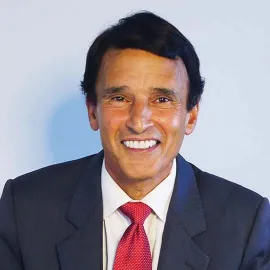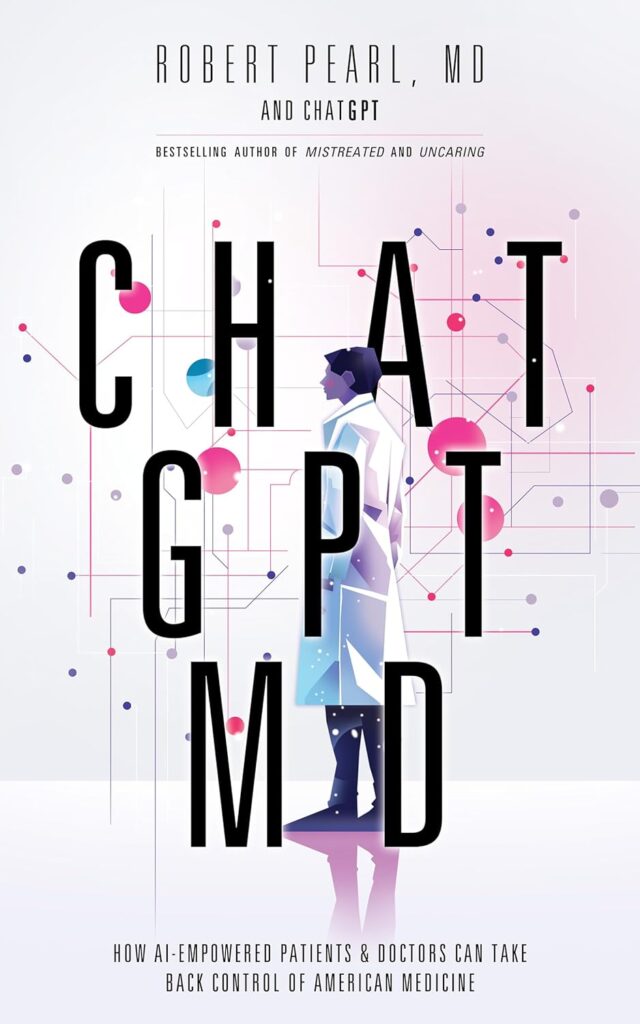
Could AI be the answer to improving medical care and reducing doctor burnout?
Posted On May 11, 2024
We had Dr. Robert Pearl on a previous episode of “What’s Working with Cam Marston” to talk about how generative AI could open up a whole new world for medicine. Now that he’s written a book about it, “ChatGPT MD,” he came back on the show to share how what he calls “value-based care,” paired with the capabilities of AI, could transform the industry.
“This is higher quality, more convenient access, and affordable costs – and I want to add another piece: Increased satisfaction for both the providers of care and the recipients of care,” said Pearl, a former CEO of The Permanente Medical Group and a lecturer on Organizational Behavior at Stanford. “Sixty percent of physicians are burned out. They need relief. And seventy percent of patients say the current healthcare system needs radical transformation.”
 Generative AI can help alleviate burnout, Pearl says, by giving patients the resources to begin the first steps toward treatment on your own, and thus save doctors time.
Generative AI can help alleviate burnout, Pearl says, by giving patients the resources to begin the first steps toward treatment on your own, and thus save doctors time.
“It will allow you as an untrained individual – someone who’s never been to medical school – to make accurate and reliable diagnoses to the best that is possible without diagnostic tests,” he said. “And if a diagnostic test needs to happen, it will inform you of what should occur so you can ask your clinician about it.”
Up to 60 percent of the U.S. population managing what would be considered chronic diseases – ailments for which they must return for regular checkups three or four times a year (like high blood pressure, diabetes and heart disease). While there’s some understandable concern about the potential for misdiagnoses or a general loss of control, the ability for patients to interpret their own symptoms and levels will not only save doctors time, Pearl says, but ultimately reduce medical errors and improve overall care.
“We have the opportunity to use this technology to diminish, by 30 to 40 percent, these life-threatening, highly expensive problems,” he said.
Pearl cautions that the technology is not yet advanced enough to rely on solely. Patients will still need the regular guidance of a doctor. But it is advancing rapidly.
To get the full benefit from it, however, we may have to also incentivize its use, Pearl says. Instead of focusing on the amount of work a doctor does or the number of patients he or she sees, he advocates moving toward a form of prepayment that incentivizes the overall health of his or her patients. He calls it “value-based care.”
“A group of clinicians is given a certain amount of money to take care of a population of patients and the better they do at preventing diseases, avoiding complications, maximizing health, the better the patients do and the better the providers of care do,” Pearl said. “This combination of a different economic model with the technology … is what drives clinicians to want to empower patients because now if the patient can do 20 percent of what’s done in the office, the clinician has more time. They can spend more time with the patients they see in person. They can have a deeper doctor-patient relationship. They don’t cut the corners and they go home at night thinking they’ve done a great job. Burnout goes down. Health improves. Longevity increases.”
Proceeds from the sale of “Chat GPT MD” will benefit Doctors Without Borders.